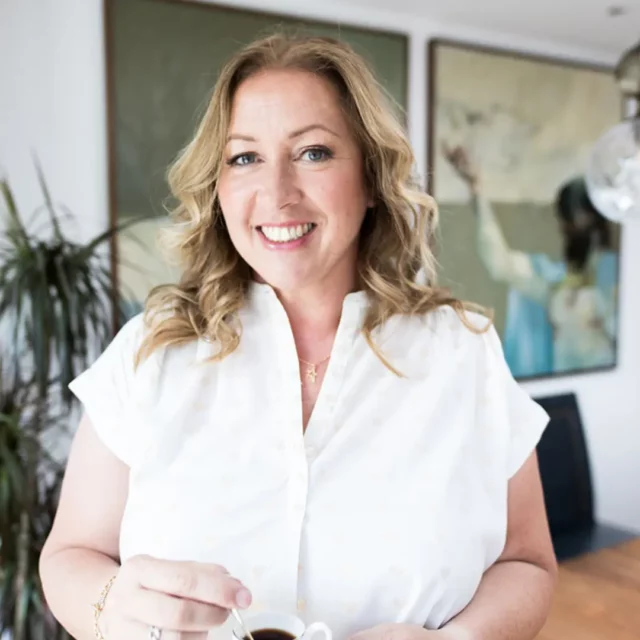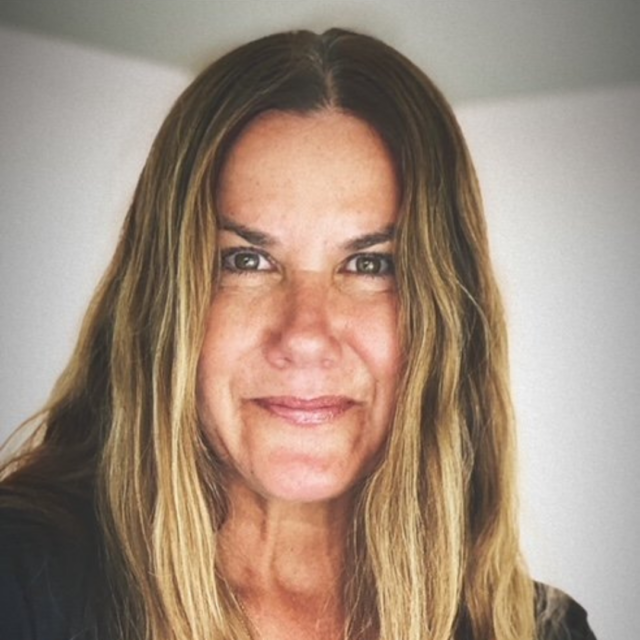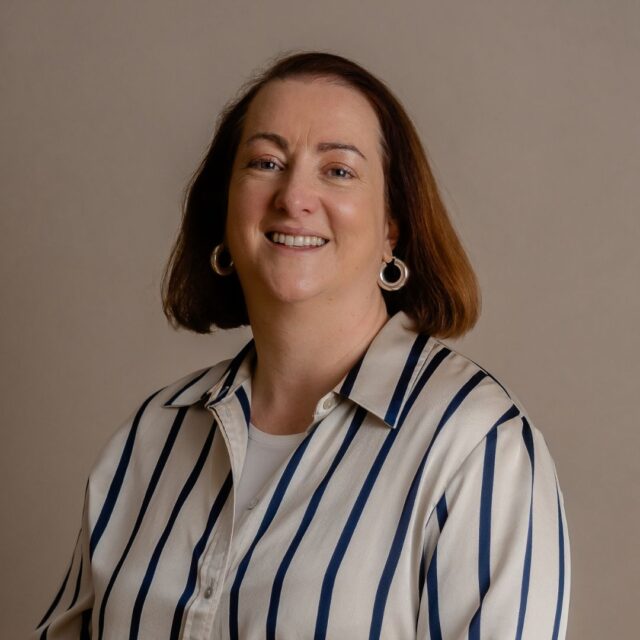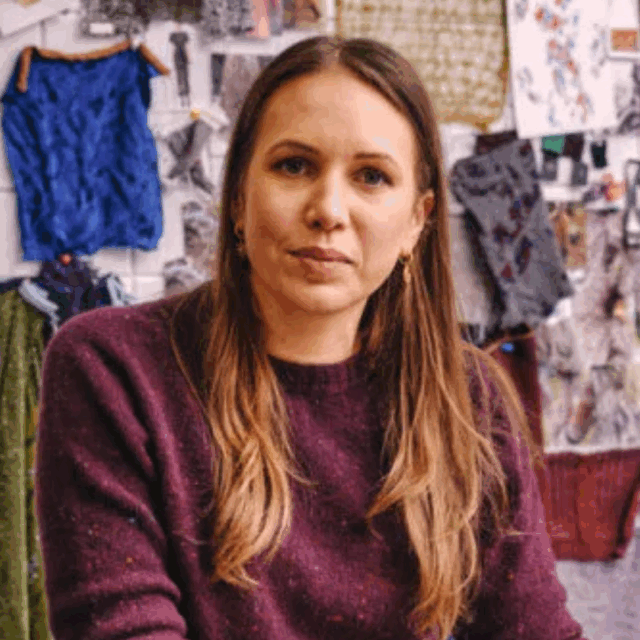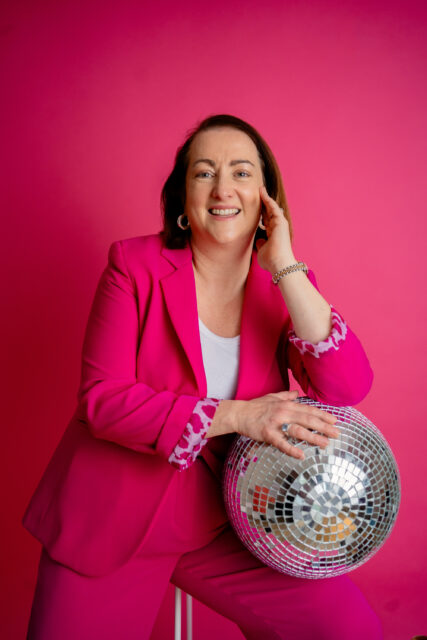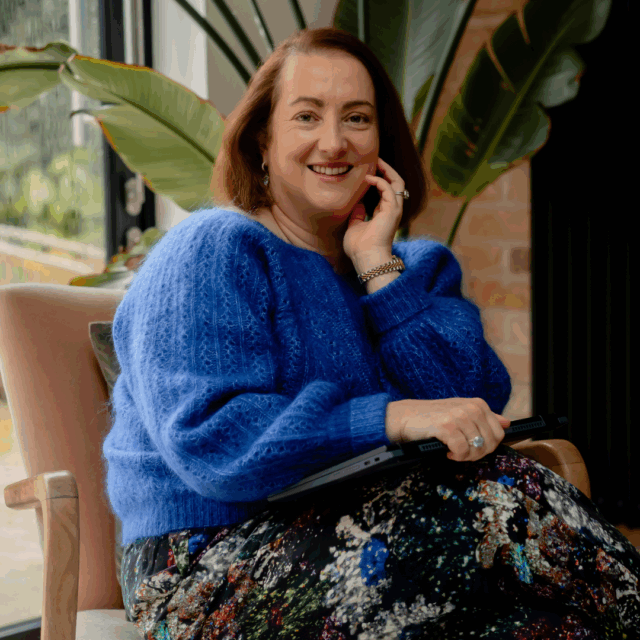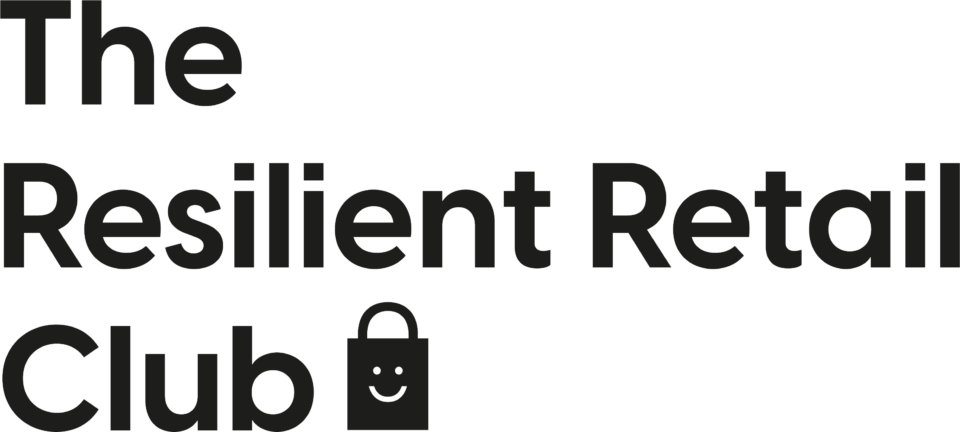Christmas in July: Thriving Through the Christmas Season with Mike Cole
Catherine Erdly: If you’re getting ready to approach the Christmas season or putting your plans in place for the Christmas season, you might be feeling a certain sense of nervousness, perhaps because this is the first time that you’ve had Christmas in your business, or maybe it’s because it’s not the first time that you’ve had Christmas in your business and you are aware of all of the work that you have coming up ahead of you.
Hi, I’m Catherine. I’m the founder of the Resilient Retail Club, which is my membership group and mastermind for product businesses. You can find out more at resilientretailclub.com. I’m also the host of the podcast and I’m delighted that you’re joining us today along with Mike Cole, who is a coach with a big background in corporate business, including corporate retail and a real focus on strategies and tactics that can help support you as the business owner when it comes to this forward planning. So I’m excited to jump in to the conversation with Mike today.
It’s part of our six part series. This is part number two of a six part series on getting ready for Christmas. So don’t forget to go back and check out week’s episode, episode 204. And we’re going to be covering lots more about Christmas in the next few weeks as well. But today’s episode is all about getting you ready so that you can not just make it through Christmas in one piece, but maybe even actually enjoy it.
Welcome to the Resilient Retail Game Plan, a podcast for anyone wanting to start, grow or scale a profitable creative product business with me, Catherine Erdly. The Resilient Retail Game Plan is a podcast dedicated to one thing, breaking down the concepts and tools that I’ve gathered from 20 years in the retail industry.
and showing you how you can use them in your business. This is the real nuts and bolts of running a successful product business, broken down in an easy, accessible way. This is not a podcast about learning how to make your business look good. It’s the tools and techniques that will make you and your business feel good.
Confidently plan, launch and manage your products and feel in control of your sales numbers and cashflow to help you build a resilient retail business.
Mike, thank you so much for joining me on the podcast. Do you want to kick us off by introducing yourself?
Welcome Mike Cole!
Mike Cole: Yeah, absolutely. Obviously, thanks so much for having me along, and I’m really excited to be getting into this subject and exploring Christmas, etc. Brilliant. Really excited. So I’m Mike Cole. Nowadays, as you know me, I’m a coach.
But if we went back a little way, then I actually was a chartered accountant and worked in corporate finance, worked as an auditor. I had manufacturing clients and audited retail clients as well.
So very excited to be exploring retail subjects, which is really cool. Nowadays yet coach. And I guess my sort of tagline thing is making work better for everyone, and that’s very deliberately both for obviously directly for my clients, but wherever they’re at, whether that they’re running their own business, whether an employee, whether a supplier or a customer, but also making it better for everyone that they interact with as well.
And so really excited to be here and hopefully can do a bit of that through this.
Catherine Erdly: Amazing. Well, Yeah, absolutely. So you, you know what we’re talking about when we’re talking about the Christmas rush. So, uh, and, And yes it’s, it’s, it’s a phenomenon. And I love the fact that you’re talking about making work better for everyone. And what we’re talking about really in this session is making Christmas better for all of those people who are listening, who are thinking I’ve got to do this.
I’ve got to get myself ready. And I think sometimes it can feel quite daunting to, whether or not it’s your first Christmas, you’re not sure what to expect, or even sometimes if it’s your 10th and you know what to expect, but you have to start getting yourself ready. So when you’re looking at business strategies, and I know you do a lot of this with your clients
If you’re juggling lots of balls, how do you identify the most important balls that should not be dropped?
Catherine Erdly: Thinking about a strategy, whether it’s overall or whether it’s about getting ready for this busy time period like Christmas, what are some of the key elements that you suggest that people incorporate in this strategy, in this preparation to make sure that they’ve basically done as much forward thinking as they possibly can?
Mike Cole: It’s a really good place to start, isn’t it? So for me, it’s all about the quality of the plan, or at least if there’s one thing to get right, that quality of the plan is w hat will set you up for real success or real failure and or at least maybe not failure, but really difficult time.
Catherine Erdly: Yes.
Mike Cole: And I think, the, some of the key elements within that I’m a believer that we’re different, you know, different people are different. And what I’d say is not all tasks are equal, not all jobs or priorities or things are equal.
And you’ve probably heard of the juggling different balls scenario. So let’s say you’ve got a whole bunch of different balls and you’re juggling them. Some are rubber, right. and so, or is rubber bouncy. So you drop it and it doesn’t do any damage.
It bounces a bit back. You probably grab it back. It, no harm done. Some might be a bit like a bean baggy kind of thing that kind of just goes a bit flip on the floor, almost no harm, or it’s a bit of a shame, but no harm and some are glass and they just, bang, shatter. and so what I think we’ve really got to do, in fact, there’s a few things I’m planning, I think one of, one of the key elements is thinking, what are those glass ones that are super critical to make sure that I actually do those.
And in my experience of working this through with people, the shocker is, they’re probably not the things that jump straight to mind.
Catherine Erdly: Okay. It’s interesting. Are they always? Business related, because I suppose when you’re talking about all of these different balls, so this could be inside the business context, but as we’re 360 degree people.
And especially if you’re a small business owner, then when you’re almost looking at this, you’ve got to incorporate all of the balls in your life. And often you’ve got several, which are business and several, which aren’t. So when you find which ones are these glass ones, this is sometimes actually not even the ones in the business that maybe you thought that’s where you, what you’d find.
Yeah.
Mike Cole: That’s exactly it. And that is spot on what happens is people define their business ones, make their business plan, but actually it’s very hard for us to distinguish or to entirely separate ourselves out of our businesses. And so if we define those glass balls or the task or the key things across the whole of our life, a whole of our our world, then we see what those really are.
And they could be a key relationship that might be something to do with like children or elderly parents. It could be a health condition. It could be as simple as a certain activity, running, reading, a bath for whatever it, just a certain activity is the difference of you being stressed and not stressed or the thing that just is the pressure release valve, right?
Let’s use bath as an example, because bath just sounds a luxury, doesn’t it? But if that was the thing for somebody, that should be the glass ball that’s not dropped.
And the reason that’s such a shocker for them is because they think, but it’s a luxury Mike.
It’s like, no, because if that’s the thing that makes the difference, it needs to be there. And this is where the personalization comes in, because for me, it’s not a bath. My brother loves running. If he doesn’t go for a run, there’s a real kind of issue, like almost literally mental health issue.
It’s he doesn’t perform as well if he’s not being out running. That’s just how he is. That’s fantastic. He loves it. But guess what? A glass ball, go for a run. It’s got to be in there. And obviously that’s a time and an energy thing. It’s really important.
Catherine Erdly: such a good point. Yeah, I was gonna say I’d probably put baths on there. And actually, I just didn’t remember when I was pregnant, which many years ago when kids are teenagers now, but you can’t have or you’re not supposed to, you’re supposed to limit your hot baths when you’re pregnant. It was really hard.
It was really difficult. So I love that. So so almost start with working out what are your non negotiables? Would that be another way of thinking about it?
Mike Cole: Spot on. Yeah, absolutely. So we start with the non negotiables. I think there’s two other key bits that I would like to consider. The first is are you aware of the phrase happy path? Have you ever heard of
Catherine Erdly: Happy Path?
No, I haven’t.
Don’t plan for the Happy Path
Mike Cole: So happy path is when everything works for you. So imagine that you’re trying to achieve something.
Let’s try and think of an exciting exciting one. You’re going on holiday, right? You’re going to go and you’re going to go and lie on a beach in Spain somewhere. And it’s going to be amazing and brilliant. Happy path is you go online and buy your tickets at the best possible price. And then you book your hotel again, amazing price.
Actually, they upgrade you. Well, Isn’t that kind and on your journey to the airport, there’s no queues, it’s all nice and simple. Everything goes to plan. And that’s really the point of happy path. So every single step all works. The best it could have worked. And we have a real tendency of doing our plans to be like, we’re going to do happy path planning.
It’s all that. That’s a one hour task. Then it’s a one hour task and I can do another one hour task, another one hour task, another one hour task. And I can do all of these like eight, eight hours worth of whatever we think we can do in a day, right? Stacks on top of each other. Actually, can we do a happy path like if it did take us an hour and every single one can we really do those all back to back in that way.
And that links to the second point, which is capacity planning. So we have a really bad habit of over committing ourselves, is what I’ve noticed when it comes to these sort of plans.
And I reckon the run to Christmas, in particular, that this is true for. So we think, how much available time do I have? Whatever that might be. And I, And I’d encourage someone’s listening to it now, just saying, run up to Christopher, how much available time do you realistically have on a day to day basis to be doing work on your business, and then I’d say in your plan, how many are you using, because what we tend to do say, I’ve got eight hours on this day or 10 whatever it is, and then we say, great. I’m going to use all of them.
So what I see is someone say, Mike, I can do a 12 hour day. I can do a 12 hour day, and I can work weekends, and I can do that because, with the six week run to Christmas, it’s so intense, I’ve just got to get my head down, and I’ve got to push through, and I’ve got to do it.
And they effectively make their plan to use all that time, and then the first thing that goes wrong. They have no bandwidth. There is nothing they can do to get back on track. Or nothing they can do within their hours. They can’t just work an extra hour
Catherine Erdly: Yeah.
Mike Cole: or pick something up on Saturday morning or, do you know what I mean?
Catherine Erdly: Yeah, because they’re massively over committed. So is it, is there such a thing as a percentage of saying, sometimes I think I need to look at how long I think someone’s going to take me and then double it because that’s usually the relationship between what I think is realistic and what actually is going to happen.
But is it as simple as that? Or do you just, is it something you learn as you go along? If you watch out for it in yourself.
Mike Cole: I would like to encourage the latter, that people look out for it and try and be honest with themselves. I do have a percentage I would like whether it’s realistic or not, I don’t know, but like ideally 80%. So you’d hold 20 percent back. In all reality, I expect everyone to take a big sharp breath.
Oh, I couldn’t do that. As in literally in 10 days, you would only schedule 8. Oh, I couldn’t do that. So you say, okay, we’ll stretch it. What about 9 days in 10? Or 9 hours in 10? is what you’re scheduling, and you’re holding an hour back. When you talk days, it sounds quite luxurious.
I bet I’d have a whole day spare of Fortnite. But the point is, you won’t have a whole day spare of Fortnite. You’ve got one day to fight all the immediate fight. As everything cascades, because things drift behind, because things are going wrong. hopefully they’re not going wrong, but if they are, you have, it’s a fire break.
You have an opportunity to take the fire break and then get yourself back on track again, rather than the whole thing going. And of course, as these little things start to hit each other, we get a bit behind. So then that hits the next task, hits the next task. This is where the glass balls fall, because then we think that nice idea of, but I could just have a, an hour long bath or half hour bath. Or a 15 minute bath. That’s not really worth running a bath for 15 minutes, is it? So we just stop. And that’s where these things happen.
And I think that flows personally into a cascade. It’s like cascade failure. So when do you make your best decisions? Like when do you, when are you at your most creative or your best like performance?
And I think
Catherine Erdly: Right, is, are you asking so that’s are you asking me or are you asking everyone listening to think about this? So when do you make your best decisions? Yeah so, so start with that. Oh, when do I make my best decisions? Um, Probably in the morning. Yeah.
Mike Cole: what’s happened before you’ve made your good decisions? What’s the run up to you being able to make a decision?
Catherine Erdly: I’ve had my breakfast.
Mike Cole: Yeah. Fab. You’re fed.
Catherine Erdly: been to the gym.
Mike Cole: That’s right. Size. Excellent.
Catherine Erdly: yeah, kind of emptied the dishwasher, hung the washing out,
Mike Cole: Yeah. All
Catherine Erdly: got ready for the day,
Mike Cole: feeling organized? You got
Catherine Erdly: yeah.
Mike Cole: Had a good night’s sleep, hopefully?
Catherine Erdly: Yeah.
Mike Cole: All right, fab. And I should let the listeners know I’ve not pre warned you that I was going to ask that. Sorry. I very much put you on the spot. Apologies about that.
Catherine Erdly: That’s
Mike Cole: But the point being, where you don’t make your best decisions is when you’re tired, when you’re hungry.
When you’ve not had a chance to get out and move, so some form of exercise and that will vary for different people, but if they’ve been sat at their desk or lugging boxes and packing stuff up hour after hour, do we make good decisions? Absolutely not. And so the reason I think we can end up with this like cascade failure is because we stopped prioritizing self care.
We stopped prioritizing the stuff that we need. So we make good decisions. And guess what? We’re less productive. Now, a happy path planning is even worse because what we thought was an hour long task, which would have been an hour long task if we were on it
Catherine Erdly: Yeah.
Mike Cole: is now an hour and a half task.
And So then we don’t sleep as well. Then we stopped prioritizing ourselves even more than we think. I know I went, I’ll just work through lunch. I’ll just press on through. And I rather like the idea, the analogy of borrowing energy. I really like watching, professional cycling. So the Tour de France style teams just at it for three weeks. I mean I don’t think I could cycle a single day’s worth of what they cycle, let alone like, I mean, it’s amazing what
Catherine Erdly: they do.
Yeah. Yeah.
Mike Cole: And they really push themselves and they really go for it. What’s interesting is they talk a lot about power in cycling. And so you can sustain a certain amount of power and you can go faster or you can put more power down to all about the Watts, put the Watts in. But then they talk about going into the red. And going into the red is where you’ve gone outside of what you can do and sustain, or that you could do for a short period of time and recover from, so there’s stuff that we can do that we do a bit more. It gets hard. It’s hard. It’s hard, but we can bring ourselves back down and we’re fine.
We are absolutely fine. It’s made no real impact or damage to us or whatever. What we need to do is make sure that when we do these boosts, because it’s super busy because Christmas is such a busy time.
Catherine Erdly: Yeah.
Mike Cole: That we don’t go into the red, because what we’re doing when we go into the red is it’s like our battery. If we imagine a laptop battery draining down and let’s say it drains at a kind of relatively steady pace, right?
And if we include self care, hopefully the draining is a bit more wavy. So if anyone’s listening, imagine now a sort of a wavier line, you’ve got sort of level bits and drops and level bits and drops. And then what we do when we go into the red is just a sharp down.
It’s just, that line just suddenly takes a massive nose dive down. And it’s really hard to recover it. Really hard to recover it. And again, it’s this idea that if we set ourselves up for success in the plan by defining what we’re trying to get out of it.
Effectively making sure we’ve got our glass balls covered, the absolute essentials, the things we absolutely need for ourselves or for the business, making sure that those are in the non negotiables.
If we then consider giving ourselves these fire breaks of time so that we’re not just working on happy path, we have such a strong opportunity to make it work.
Catherine Erdly: Yeah, that’s such a good point. And I think that there’s a few things that really springs to mind, because I think that this is what does make it so tricky for small business owners at Christmas, because number one, the stakes are high, it’s not uncommon for, 50 percent of your annual income to be coming in the six week run up to Christmas if you’re a gift led business.
So that’s half your business year effectively happening at six weeks. We are often you know, parents, siblings, children we’ve got caring responsibilities of lots of different natures. We’re often responsible for the family Christmas. So in terms of the emotion, it’s like you’re busy time personally and you’re busy time professionally.
And I think that’s one of the reasons when you were talking, I was just thinking that this is why we’re talking about Christmas in the summer, why I bang on about this subject so much is because it’s looking at that time period, like you say, and not doing the happy path and going, do you know what, I could probably do all my marketing in November, or I’d probably get by without that extra pair of hands.
I think it will all be fine. But actually, like you say, going, okay, in my ideal world, I would say for all small business owners, if the only things that they have to do in November and December, sell and serve their customers, that is ideal. If everything else that is required for Christmas preparation can just shuffle out of that time period, shuffle forward, shuffle, all the way into the summer, right?
Doing your prep then exactly as you said, you do it. You’re not doing that thinking where you’re like, Oh, I’m sure it’d be fine. And then before you know it, half your team have got COVID and you’ve been up till 2am sending stuff out. And then it’s one customer email that says, where’s my parcel?
I can’t believe you’ve taken my money. And that’s it. You’re just in emotionally distraught, right? I like that cascade failure, right? It’s all just gone I was going to say gone to pot, but I mean it kind of can feel like that, right? And I think it’s absolutely fine to have your goal for Christmas to get through and not crawl into that Christmas to New Year week and just want to hide in your bed.
Yeah,
One of the lovely ways to look at
Mike Cole: how successful was my Christmas period. Of course, I absolutely expect the listeners to be going income
Catherine Erdly: yeah. Yeah.
Mike Cole: How many things I sold, how happy my clients are with, you know, so I actually was getting, so the customers buying it and leaving good reviews, of course, but basically income, right?
That’s the main thing. So here’s a little extra one. What about how much you can enjoy Christmas? In other words, how much do you recover from when the moment that the store is closed the, whether it’s online or physical shops done closed. Ah as you’ve mentioned, you’re probably, ah, but now I actually have to, maybe I’ve got family coming around.
I’ve got a, maybe rapidly as a presence. I’ve got all of that stuff too, but actually if you hit that in a poorly, if you hit all of that and need two weeks of absolute nothingness because you’re so drained, you’re probably going too far into the red. And this is the moment. So if that happened last year to somebody, this is the moment, as you say, in the summer to be going, how do I plan?
So I don’t have that. And what I’ve taught so far, we’ve talked so far about structuring some of that. But you’re right, the more we can pull early, the better, the more we can structure in so that we’re just focused. The one thing we have to do, or maybe two, three Two kind of main things we’re doing, right?
Keeping customers happy. So getting the orders out and selling. Making sure that potential customers know this is there and that they want it, right? And I think there’s something else you mentioned that COVID piece. The other one I would say that, what do we do if our team suddenly come downhill?
Do you have a business continuity plan?
Mike Cole: What do we do if we come downhill? What if. In all the other things that are going on in our worlds, suddenly there’s an extra pressure. There’s a family member that’s poorly. And we want to help out. We need to help out. really encourage having a business continuity plan. And I say that I took a little breath in because I didn’t really want to say the words. I was trying to think of a better way in that moment. Oh, is there a better way of phrasing it? So business continuity plan. And I don’t know, is this something you often talk about Catherine?
Catherine Erdly: No, No, I mean I’ve heard it in a corporate context but I’m loving this idea for small business owners because usually the answer is when your team’s sick, you step up and all kinds of chaos ensues.
Mike Cole: So here’s the logic. So the logic is at the worst possible moment, let’s just consider what would you do if you were sick or if your team was sick and of course, default one is I’ll just step it up more and do more work that works. If you’ve got the fire breaks, if you’ve got that capacity spare, but if you’ve already committed all your capacity, you’re in trouble, right?
That’s why that planning is so important, so what I’d encourage looking at is what other options have you got? So is there a team member that I could lean on a bit more? Could I encourage the team generally to step it up a bit? Is there someone who has worked with me before that I’m very friendly with who just come in and help me out, basically a bit of a favor?
And this is well worth considering because it can be outside of your work. So is it that actually, if someone could do the school runs for me for two weeks, that would just make a difference. And actually, my friend. Bob, Janet, whoever, I think they do it for me. So I don’t even need to ask them.
I don’t need to make that like an official thing, although I might want to, but I could, but just knowing, do you know what, if it all goes, not if it all goes wrong, but if there’s beginning of that cascade failure starts, or if someone is poorly or ill, or I hit with one of these curve balls, actually probably the first thing I do is get someone else to pick the kids up.
And then that gives me an extra hour a day, which I can deploy into this. Does that make sense?
Catherine Erdly: Yeah,
Mike Cole: way I look at the continuity.
Catherine Erdly: Yeah. It’s such a good point because I think we tend, I always like the phrase plan for the worst and hope for the best. It reminds me when I was working full time in a corporate role and so was my husband and we had two small children and you have to have, you can’t just have plan A and plan B for child care but you also need like C and D because there were these, there were these just occasions where all of a sudden the babysitter’s ill and then the backup person’s away and then it’s like you can’t just not go to work that day or certainly this was a while before the pandemic so there really wasn’t as much working from home so you know you just had to have all these options and it’s all it’s like you’re saying, with the business you have to go through and go right I’m going to make the plan but I’m going to say if this person’s ill because also it quite often happens like especially I see it with people who run independent retailers physical shops like if one person gets sick then everyone gets it and then the whole you know it’s like the shop owners in there and, covering everybody’s shift.
So it’s like, how do you strike the balance between do you pay for an extra pair of hands just in case you need it, but then that can be a big extra expense. But it’s almost like you’re saying, going through and doing like a let’s look at scenario A. And then if that happens, then what could, that person step in and then if that person’s ill, almost like you’ve got to give yourself three or four steps and you may never get that far but it’s a heck of a lot better to have done it and not need it than to not done it and need it.
Mike Cole: Yeah. And if you just considered the first step of all of those,
Catherine Erdly: Yeah.
Mike Cole: assuming that you haven’t already done that’s a massive improvement
Catherine Erdly: yeah. Yeah.
Mike Cole: actually the sickness is a great example. So let’s say you’ve got a shop, you’ve one of your team gets sick, but they know it’s a busy time.
They’re committed that you’ve got a really engaged set of staff and their game, right? So they’ve come in and they’re pushing through and you’re right. They take the rest of the team out. So actually there is something you could do about that straight away. The sort of the thing you could do going into that time is to make it really clear that actually, if they’re poorly, yes, it’s amazing that they sold just through, but the most important thing if they’re poorly is they don’t give it aside from they get better is that they get, they don’t give it to anyone else.
Because one person short, the team might be able to cover, but five people short. And I need a whole new set of staff for a week. So actually the initial step, and then you were describing thinking of the, let’s say three steps beyond, but the first one, when you do that thinking, it may get to, Oh God, I can’t have a whole spare team.
No. But what could you do to then avoid that happening in the first place? We can’t stop people being sick, but we can encourage that people always wash their hands properly, that they wash before they eat. We can make sure that they can have breaks where they can like properly sit down and eat. What can we do to structure it in a way that minimizes these risks for, in that case, the staff.
Catherine Erdly: Yeah, for sure. And I wonder if you had any thoughts about what happens if, now hopefully everyone listening to this is going to go away and think about this and avoid the happy path planning and work out their non negotiables. And as I said, I think it’s a great goal to have for your Christmas that you get through and still love your family by the end of it and aren’t just like completely stressed out. But what happens if. These things, these are skills you develop over the time with your business, but
What happens if you don’t quite get it right and it does go into cascade failure, is there anything you can do in the midst of it all?
Catherine Erdly: what happens if you don’t quite get it right and it does go into cascade failure, is there a, almost like a emergency stop button or is there anything you can do in the midst of it all?
Yeah.
Mike Cole: actually no, no one listening to this is going to go into Cascade Filling because they’re going to have sorted their plan out. In reality, just statistically, it’s likely it’s going to happen to somebody just because this stuff happens.
And more than likely, that may have been something they could have seen, but it may well not have been something they’d considered in their plan. And that’s part of how we iterate and make plans better year on year. There’s a learning to that. And unfortunately, that’s a bit of life. Okay, what do you do if it starts to go wrong?
One of the best things is to recognize that it is starting to go wrong. In other words, noticing that it’s beginning to go wrong rather than I’m already at a pretty catastrophic level of problem. Does that make sense? And so if we start with this bit, how do you see that? And how do you know? I think a really good way, this is where like key performance indicators, KPIs can play into it.
So that could be around the actual staff or the operations of the shop. I might just focus on the individual, the business leader for a second. For them, I’d say, When you start to feel overloaded or stressed how does that show up? And for a lot of people, it’s physical. So quite a few people I talk to, they feel a physical like pressure, maybe on their chest, maybe like a neck pain or shoulder. And I would actually, and this sounds a bit weird. But I would reflect on how it shows up for me and then I would give it a score and I’d literally throughout this period have a, how’s my neck pain today? Zero. Good. How’s my neck pain? Two. Okay. Interesting. How’s my neck pain? And there’s a degree, which is fine.
Let’s say less than three, but I make on a not to 10 scale. Let’s say that’s less than three, but I’m making that less than three. That up, right? This is again, a very personalized thing. If I go over three, am I worried? No, it’s, but it’s starting to make me notice that what’s the trend? What’s going on here?
But if I’m getting into the six or sevens, then actually I need to. It’d be a lot more careful. And I’m suspecting that a seven and an eight is I’m into the things that are getting away from me. So I think the first thing to help try and stop us getting into this place is to recognize it early and then activate whatever our contingency was.
In other words, chances are it’s to get more help and that may well be, what can, what other responsibilities can I release myself from so that I can go in and solve this problem? If my team are capable of solving the problem. How can I help them free themselves up? That’s not by me doing it, by the way, but almost like what can I deprioritize for them, or can I make the lofty decision to help them free up their time so they can go solve the problem?
Because again they don’t necessarily want to drop anything because they don’t want to let us down. But if it’s my decision, we’re not dropping it. That’s okay. That was a trade off.
So then what happens if we’re in the full on Cascade failure level, seven, eight on this 10 score and the world feels awful. Absolutely pause button time. So go take a moment, like literally take a breath, but like properly take a breath. Ignore the world for a second, just a second, reground yourself. I’m a huge fan of looking at the sky for this
Come rain or shine, pretty much because clouds are almost always different, whether it’s nighttime, there might be stars, just have a second to look up, take a really deep breath. Just ground yourself for a moment and then go, what one key step can I make? Okay. That will take me in the right direction. Just one, one key step and take that step to the same thing again. What’s the next step? Because what happens in these moments is we look up and we see a mountain that’s so big and so scary that it overwhelms us.
Whereas if we, that’s a overused analogy, probably, but if we just focused on the next step, then we go, I can do five. I’ve got five steps in me, but I’m not even going to worry about what those five steps are. I’m just going to take the next one. I’d take that next one. And do you know what? I’ve still got five steps in me because I can still feel it and I’m okay.
I’m going to take one more, but I’m not going to look at six or seven or eight steps. And I’m not even going to look at the five. I’m not going to look at everything I could do. I’m just going to say the one big thing that’s going to make a difference. I’m going to do that. Then I’m going to do the next one.
Then I’m going to do the next one. Does that make sense?
Catherine Erdly: That’s great. Yes. Thank you so much. That’s great advice. I do hope that what we hopefully avoided is cascade failure by pointing out how you got to be realistic, you got to give yourself the best fighting chance you’ve got to get through this. fourth quarter and be thinking about it now in the summer to help you avoid doing that, but it’s been brilliant to have you on.
Thank you so much for sharing all of your insight. Do you want to wrap up by letting us know where people, we’re letting everyone know where they can find out more about you?
Mike Cole: Yeah, absolutely. I’ll share just one other bit as well. And I can’t stress this enough. Be kind to yourself throughout this time. It’s quite possible. No one else is going to be kind to you. So be kind to yourself. Okay. They should be, but it’s a stressful time for everyone around this.
So yeah be genuinely be kind to yourself. And look after yourself cause that is the biggest game changer in its own right through this.
So if anyone wants to come and connect with me, I’m on LinkedIn at thismightcold. com. Or come to the website, which is Milico, because I work with my wife, she’s called Liz.
So you can work out a little puzzle if you like, it won’t take you very long to work out how we got to Milico. So milico. uk, come along there. I’ve got a wonderful quiz that’s really cool, and it’s all about how well you’re thriving at work, and what could help you thrive more at work. And it comes down to the idea that when a flower doesn’t grow and blossom, right? We need to look at the environment, not the flower. So if something isn’t quite right for somebody, don’t beat themselves up why they can’t do it.
Let’s look at the environment they’re in to see how that can change so they can. And that’s what the quiz is about. It takes less than 60 seconds to do, and it’s a really cool quiz. So I’d love it if people came along to that. I think the link is in with the show notes,
Catherine Erdly: Yeah,
Mike Cole: they can
Catherine Erdly: that in the show notes for sure.
Mike Cole: Fantastic.
Catherine Erdly: Thank you so much for tuning in. Why not head over to Instagram at Resilient Retail Club, tag me into where you’re listening to the podcast. And of course, if you have a moment to rate and review the podcast, it makes such a difference. You can do that in Apple podcasts, and you can also rate. And follow the podcast in Spotify.
And of course, if you follow, subscribe, whatever it’s called on the platform that you’re using to the podcast, then you will be the first to know about each and every episode, which comes out every Thursday.

